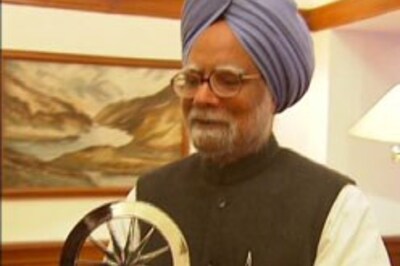
views
The debate surrounding the Uniform Civil Code (UCC) over the last few decades has its origin in the Shah Bano Case (Mohd. Ahmed Khan Vs. Shah Bano Begum) in which the apex court had delivered a judgement (on 23 April 1985) in favour of an old divorcee Muslim woman that was seen as an attack on Muslim Personal Law by radical Islamists and a section of political class that believed in appeasement of radical Muslims at the cost of progressive members of the community. The then Congress government at the Centre buckled under the pressure. In 1986, it brought a law in the Parliament to overturn the decision of the Supreme Court of India.
While much has been discussed about the Shah Bano case since then, we have overlooked some of the key observations made by the Supreme Court in this case. It is important to note that the court itself had made clear that it wasn’t a case that involved an issue related to constitutional law. It was a simple case of a civil suit related to a dispute over alimony for a divorced Muslim woman.
The judgement was delivered by a five-member Constitution Bench headed by the then Chief Justice of India YV Chandrachud and comprising Justice Rangnath Misra, Justice DA Desai, Justice O Chinnappa Reddy and Justice ES Venkataramiah.
The debate on the Uniform Civil Code seems to have entered a decisive stage as the Modi government at the Centre seems to be moving towards implementing it. This has also drawn strong criticism from radical Muslim leadership and most of the Opposition parties.
Interestingly, the observations made by the apex court, which haven’t been part of this debate so far, convincingly provide answers to all the points raised by the opponents of the UCC. Here are key takeaways that are relevant for the ongoing debate on the UCC:
On the need to implement UCC
The Supreme Court said, “It is also a matter of regret that Article 44 of our Constitution has remained a dead letter.” The Article says, “The State shall endeavour to secure for the citizens a uniform civil code throughout the territory of India.” There is no evidence of any official activity for framing a common civil code for the country. A belief seems to have gained ground that it is for the Muslim community to take a lead in the matter of reforms of their personal law. A common civil code will help the cause of national integration by removing disparate loyalties to laws which have conflicting ideologies. No community is likely to bell the cat by making gratuitous concessions on this issue. It is the State which is charged with the duty of securing a uniform civil code for the citizens of the country and, unquestionably, it has the legislative competence to do so.
On the need to have political courage to implement UCC
The apex court made a candid observation when it said, “A counsel in the case whispered, somewhat audibly, that legislative competence is one thing, the political courage to use that competence is quite another. We understand the difficulties involved in bringing persons of different faiths and persuasions on a common platform. But, a beginning has to be made if the Constitution is to have any meaning.”
On limitations of the judiciary
Underlining the limitations of the judiciary in providing justice to minorities in the absence of the Uniform Civil Code, the court said, “Inevitably, the role of the reformer has to be assumed by the courts because, it is beyond the endurance of sensitive minds to allow injustice to be suffered when it is so palpable. But piecemeal attempts of courts to bridge the gap between personal laws cannot take the place of a common civil code. Justice to all is a far more satisfactory way of dispensing justice than justice from case to case.”
On what leading Islamic Scholars have to say about the UCC
The Supreme Court specifically quoted a well-known Islamic scholar who specialised in Mohammedan Law in this regard. It said, “Dr Tahir Mahmood in his book Muslim Personal Law (1977 Edition, pages 200-202), has made a powerful plea for framing a Uniform Civil Code for all citizens of India. He says: ‘In pursuance of the goal of secularism, the State must stop administering religion-based personal laws.’ He wants the lead to come from the majority community but, we should have thought that, lead or no lead, the State must act. It would be useful to quote the appeal made by the author to the Muslim community: ‘Instead of wasting their energies in exerting theological and political pressure in order to secure an immunity for their traditional personal law from the state’s legislative jurisdiction, the Muslim will do well to begin exploring and demonstrating how the true Islamic laws, purged of their time-worn and anachronistic interpretations, can enrich the common civil code of India.’”
At a seminar held on October 18, 1980, under the auspices of the Department of Islamic and Comparative Law, Indian Institute of Islamic Studies New Delhi he also made an appeal to the Muslim community to display by their conduct a correct understanding of Islamic concepts on marriage and divorce (See Islam and Comparative Law Quarterly, April-June, 1981, page 146).
On evolution of Muslim personal laws in contemporary context
The court made an interesting reference while raising the challenge regarding making Muslim personal laws relevant in contemporary terms as it observed, “Before we conclude, we would like to draw attention to the Report of the Commission on Marriage and Family Laws, which was appointed by the Government of Pakistan by a Resolution dated August 4, 1955. The answer of the Commission to Question No.5 (page 1215 of the Report) is that ‘a large number of middle-aged women who are being divorced without rhyme or reason should not be thrown on the streets without a roof over their heads and without any means of sustaining themselves and their children’.” The Report concludes thus: “In the words of Allama Iqbal, “The question which is likely to confront Muslim countries in the near future, is whether the law of Islam is capable of evolution-a question which will require great intellectual effort, and is sure to be answered in the affirmative.”
The writer, an author and columnist has written several books. He tweets @ArunAnandLive. The views expressed in this article are those of the author and do not represent the stand of this publication.


















Comments
0 comment